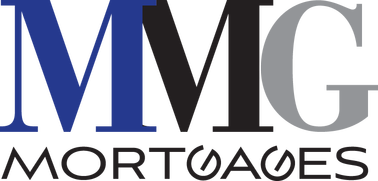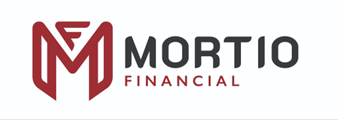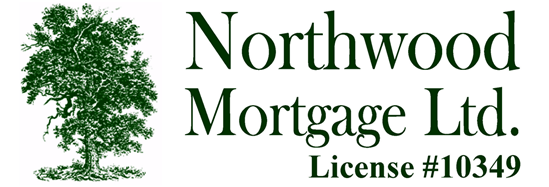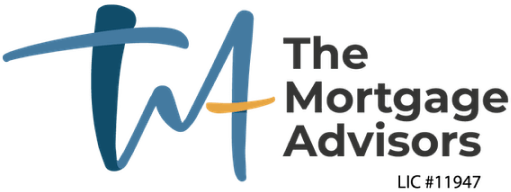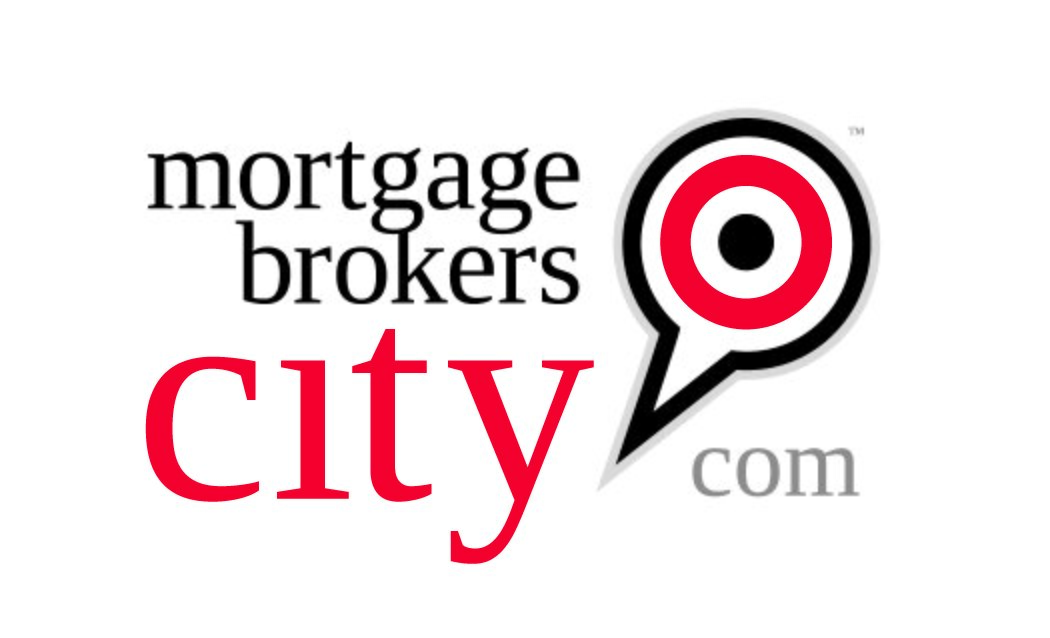Self-Employed Mortgages in Canada
Your guide to getting a mortgage as a self-employed person in Canada.
Compare mortgage rates from lenders across Canada





Canada's Best Mortgage Rates By Mortgage Term
Evaluate Canada’s best mortgage rates in one place. RATESDOTCA’s Rate Matrix lets you compare pricing for all key mortgage types and terms.
Rates are based on an average mortgage of $500,000 and subject to change based on filter criteria.
Updated 17:08 on Jul 14, 2025| Placeholder |
Insured
The rates in this column apply to borrowers who have purchased mortgage default insurance.
This is required when you purchase a home with less than a 20% down payment.
The home must be owner-occupied and the amortization must be 25 years or less.
|
80% LTV
The rates in this column apply to mortgage amounts between 65.01% and 80% of the property value. The home must be owner-occupied and have an amortization of 25 years or less. You must have purchased it for less than $1 million. These rates are not available on refinances. Refinances require "Uninsured" rates.
|
65% LTV
The rates in this column apply to mortgage amounts that are 65% of the property value or less. The home must be owner-occupied and have an amortization of 25 years or less. You must have purchased it for less than $1 million. These rates are not available on refinances. Refinances require "Uninsured" rates.
|
Uninsured
The rates in this column apply to purchases over $1 million, refinances and amortizations over 25 years. More info on the differences between insured and uninsured rates.
|
Bank Rate
Bank Rate is the mortgage interest rate posted by the big banks in Canada.
|
|---|---|---|---|---|---|
| 1-year fixed rate | 4.69% | 4.19% | 4.19% | 5.59% |
5.49%
|
| 2-years fixed rate | 4.04% | 3.89% | 3.89% | 4.54% |
4.79%
|
| 3-years fixed rate | 3.87% | 3.99% | 3.99% | 4.24% |
4.29%
|
| 4-years fixed rate | 3.99% | 3.99% | 3.99% | 4.44% |
4.39%
|
| 5-years fixed rate | 3.91% | 3.89% | 3.89% | 3.91% |
4.09%
|
| 7-years fixed rate | 4.39% | 4.24% | 4.24% | 5.19% |
5.00%
|
| 10-years fixed rate | 5.04% | 4.34% | 4.34% | 5.29% |
6.09%
|
| 3-years variable rate | 4.15% | 4.30% | 4.30% | 4.40% |
6.35%
|
| 5-years variable rate | 3.95% | 3.95% | 3.95% | 4.05% |
4.25%
|
| HELOC rate | N/A | N/A | N/A | N/A |
N/A
|
| Stress Test | 5.25% | 5.25% | 5.25% | 5.25% |
N/A
|
Today's Best Mortgage Rates in Canada
Evaluate Canada’s best mortgage rates in one place. You can compare the most current mortgage rates and monthly payments from 175+ banks and lenders across Canada.
Rates are based on an average mortgage of $500,000 and subject to change based on filter criteria.
| Lender
|
Insured
|
Insurable
|
Uninsured
|
|---|---|---|---|
|
MMG Mortgages
|
3.99%
$2,627.39 / month
|
4.19%
$2,681.85 / month
|
4.14%
$2,668.19 / month
|
|
Mortio Financial Corp
|
3.99%
$2,627.39 / month
|
4.24%
$2,695.56 / month
|
4.14%
$2,668.19 / month
|
|
Northwood Mortgage Ltd.
|
4.14%
$2,668.19 / month
|
4.24%
$2,695.56 / month
|
4.24%
$2,695.56 / month
|
|
Innovation Federal Credit Union
|
4.39%
$2,736.87 / month
|
4.39%
$2,736.87 / month
|
4.39%
$2,736.87 / month
|
|
True North Mortgage
|
2.99%
$2,363.66 / month
|
2.99%
$2,363.66 / month
|
2.99%
$2,363.66 / month
|
|
The Mortgage Advisors
|
3.87%
$2,594.98 / month
|
3.87%
$2,594.98 / month
|
3.87%
$2,594.98 / month
|
|
Nesto
|
3.91%
$2,605.76 / month
|
3.91%
$2,605.76 / month
|
3.91%
$2,605.76 / month
|
|
Hypotheca
|
3.94%
$2,613.86 / month
|
3.94%
$2,613.86 / month
|
3.94%
$2,613.86 / month
|
|
MortgagestoGo
|
3.94%
$2,613.86 / month
|
3.94%
$2,613.86 / month
|
3.94%
$2,613.86 / month
|
|
One Link Mortgage & Financial
|
3.95%
$2,616.57 / month
|
3.95%
$2,616.57 / month
|
3.95%
$2,616.57 / month
|
|
Mainstreet Credit Union
|
3.99%
$2,627.39 / month
|
3.99%
$2,627.39 / month
|
3.99%
$2,627.39 / month
|
|
The Police Credit Union
|
3.99%
$2,627.39 / month
|
3.99%
$2,627.39 / month
|
3.99%
$2,627.39 / month
|
|
Monster Mortgage
|
3.99%
$2,627.39 / month
|
3.99%
$2,627.39 / month
|
3.99%
$2,627.39 / month
|
|
Northern Birch Credit Union
|
3.99%
$2,627.39 / month
|
3.99%
$2,627.39 / month
|
3.99%
$2,627.39 / month
|
|
City Wide Financial Corp
|
3.99%
$2,627.39 / month
|
3.99%
$2,627.39 / month
|
3.99%
$2,627.39 / month
|
|
Sudbury Credit Union
|
3.99%
$2,627.39 / month
|
3.99%
$2,627.39 / month
|
3.99%
$2,627.39 / month
|
|
East Coast Mortgage Brokers
|
4%
$2,630.10 / month
|
4%
$2,630.10 / month
|
4%
$2,630.10 / month
|
|
Mortgage Brokers City Inc
|
4.04%
$2,640.95 / month
|
4.04%
$2,640.95 / month
|
4.04%
$2,640.95 / month
|
|
Prospera Credit Union
|
4.04%
$2,640.95 / month
|
4.04%
$2,640.95 / month
|
4.04%
$2,640.95 / month
|
|
First Credit Union
|
4.29%
$2,709.29 / month
|
4.29%
$2,709.29 / month
|
4.29%
$2,709.29 / month
|
|
First National Financial
|
4.34%
$2,723.07 / month
|
4.34%
$2,723.07 / month
|
4.34%
$2,723.07 / month
|
Head straight to:
- What is a self-employed mortgage?
- Conventional mortgage vs. self-employed mortgage: What’s the difference?
- Who is considered self-employed in Canada?
- How do mortgage lenders verify self-employed income?
- Self-employed personal taxable income vs. business income
- What is self-employed stated income?
- Self-employed mortgage rates between bank lender vs B lender vs private lenders
- Self-employed mortgage requirements
- Pros & cons of getting a self-employed mortgage
- How much can I borrow for a self-employed mortgage?
- Frequently asked questions about self-employed mortgages
What is a self-employed mortgage?
While self-employment represents freedom and flexibility for a growing number of Canadians, it comes with some drawbacks. Chief among them is the difficulty in obtaining a conventional mortgage. In this guide, we’ll explore an increasingly popular alternative: the self-employed mortgage.
Conventional mortgage vs. self-employed mortgage: What’s the difference?
Securing a mortgage involves submitting detailed financial information to a prospective lender. That includes your assets, debts, credit background, and – most importantly – your income. These loans are built for traditionally employed people who make a consistent annual salary.
But for self-employed people who run their own business, meeting these requirements can be difficult. Business owners usually deduct as many expenses as possible to keep their taxes low, but this has the unfortunate side-effect of lowering their official income. Mortgage qualifications that would be fairly easy for people with traditional employment to attain can thus be out of reach for the self-employed.
Enter the “self-employed mortgage” – a home loan designed specifically for people who are self-employed. These mortgages can have more flexible income guidelines and document requirements than a conventional mortgage.
Who is considered self-employed in Canada?
You’re considered self-employed if you’re a business owner – whether you’re a partner or the sole proprietor. In other words, you make money by securing your own contracts directly from clients and are not paid by an external employer. This can include people who work in commission sales, as well as freelance creative workers, farmers, etc.
How do mortgage lenders verify self-employed income?
Mortgage lenders verify self-employed income with a variety of strategies. They may consider Line 150 of your income tax filings for the past two years, which reports your income directly. And for some self-employed people, this number is high enough (even after-tax deductions) that no other form of income verification is necessary.
In most cases, however, the lender will end up considering additional documentation to verify your income. This can include your Notice of Assessment, bank deposit slips, customer invoices, and other internal corporate financials.
Self-employed personal taxable income vs. business income
In the eyes of your lender, there are two distinct income channels to consider: The first is your personal income as a self-employed person, and the second is the income of your business itself.
Your personal taxable income is how much the business “pays you”, so to speak. In some cases, this may be an officially designated term – i.e., the salary you make as a business partner. The income of your business may be different (and much larger) – it’s the total revenue brought in by your business. A self-employed mortgage may consider both of these numbers to better understand your financial picture and your ability to make consistent mortgage payments.
What is self-employed stated income?
One mortgage option for self-employed people is the “stated income” mortgage[JS2] . This means you simply state your income and do not need to provide documentation to prove it. The stated income must be reasonable – i.e., generally aligned with your industry – but beyond that, there are almost no documentation requirements.
Note that “stated income” mortgages are seen as highly risky and thus carry much greater down payment requirements for you, the borrower (often 35% or higher). They also have much higher interest rates, meaning they cost significantly more over the life of the loan. Stated income mortgages are not available from any of Canada’s “big six” national banks. To attain one, you’ll likely have to deal with a broker or private lender.
Self-employed mortgage rates between bank lender vs B lender vs private lenders
Mortgage lenders can be divided up into three categories: “A Lenders” (i.e. Canada’s major banks), “B Lenders” (which are smaller and more loosely regulated), and private lenders, which are even smaller and unregulated.
The major banks (A Lenders) offer the lowest interest rates. They’re also the most selective, meaning they turn down mortgage applications. B Lenders are less selective but can have higher interest rates as a result. And private lenders may be willing to lend to those even B lenders would not for a chance to profit. Their interest rates are the highest, ranging from 7-18% – an incredibly high cost over the life of the loan.
Self-employed mortgage requirements
If you’re considering a self-employed mortgage, it’s essential to understand that requirements vary tremendously between different lenders. That said, here’s a rough guide to the guidelines you can expect:
- A lender/Big Bank mortgage requirements
- Maximum mortgage loan amount: There will be an upper limit to how much you can borrow. For instance, National Bank caps your self-employed mortgage amount at $600,000.
- Minimum down payment: You must pay for some portion of your home upfront to qualify for a mortgage, but you can lower that amount by paying for mortgage default insurance. Bank of Montreal, Canadian Imperial Bank of Commerce, Royal Bank of Canada, and Toronto Dominion Bank all require a minimum 20% down payment, or a 5% minimum if you get default insurance. National Bank and Scotiabank both require at least 10% down payment.
- Mortgage insurance: Also known as mortgage default insurance, this is an insurance policy that protects the lender in case you can no longer afford your mortgage. You pay for this policy in the form of a monthly insurance premium. Most bank lenders waive the mortgage insurance if your down payment is sufficiently large.
- Financial requirements: Banks want to confirm that the mortgage is of an appropriate size given your income, earning capacity, and debt. They will likely assess your Total Debt Service (TDS) ratio, meaning the value of your debt (including the mortgage, property taxes, credit card payments, etc) relative to your gross annual income. Lenders typically look for a TDS in the 32-42% range. You are also required to have reasonably good credit (620 or higher, depending on the lender) and to be free of tax arrears.
- Types of documents required: Depending on the lender, you might be required to submit your tax returns and Notices of Assessment for several prior years, your business licence and articles of incorporation, proof of monthly income (e.g., bank deposit slips and customer invoices), and documentation of your current assets and liabilities.
- B Lenders
- When it comes to self-employed mortgages, B lenders have similar requirements to A lenders. But as we discussed above, B lenders are less stringent. For example:
- Your income levels can be lower, relative to the cost of the home. For instance, a B lender might require a TDS under 50%, while A lenders may cap that number at 40%.
- Your required down payment is higher than for A lenders, i.e. in the 10-20% range.
- Your credit score can be lower – e.g. 500+ instead of 600-700 for bank lenders.
- Documentation requirements are more flexible. E.g. B Lenders may consider internal financial documents proving the liquidity of your business that banks would not allow.
- When it comes to self-employed mortgages, B lenders have similar requirements to A lenders. But as we discussed above, B lenders are less stringent. For example:
- Private Lenders
- Private lenders are unregulated, and charge much higher interest rates than banks or B lenders. In exchange for that higher cost, you face extremely lax requirements. For example:
- Your credit score can be lower than other mortgage backers would allow.
- You may not need to produce any documents evidencing your income. This is called a “stated income” mortgage, meaning you simply state your income without providing proof.
- You will still likely need to submit a Notice of Assessment from the Canada Revenue Agency demonstrating that you have no tax arrears.
- Private lenders are unregulated, and charge much higher interest rates than banks or B lenders. In exchange for that higher cost, you face extremely lax requirements. For example:
Pros & cons of getting a self-employed mortgage
Like any complex financial decision, the question of whether to get a self-employed mortgage is a very personal one. Many different factors could push you in one direction or another. While you’ll need to do your own research and weigh these factors carefully, here are a number of things to consider:
- Pros of getting a self-employed mortgage
- It’s a good investment: For many Canadians, homeownership is the key to financial prosperity. The Canadian housing market has grown by about 6% annually for the past 15 years.
- Great interest rates may be available: If you qualify for a mortgage from an A Lender, you’ll get access to very low interest rates.
- Sense of stability: Knowing that you own your own home can be incredibly important for your sense of well-being – especially if you’re running a business or raising a family.
- Can help power your business: Depending on the kind of business you operate, homeownership may allow you to create a dedicated workspace, store inventory and equipment, and leverage your equity for business expansion.
- Cons of letting a self-employed mortgage
- Lots of money required upfront: The down payment for your new home could cost tens or even hundreds of thousands of dollars. There are also many hidden costs and fees to homeownership which you’ll need to cover.
- Less liquidity: Tying up your money in a home means that you can’t spend it on other things – like your business.
- Less mobility: Renters have the unique ability to pick up and move town fairly easily. If you work in a field where geographic mobility is valuable (like commission sales), owning a home can be a drawback.
- Rates can run high. If you don’t qualify for the A lenders, or if interest rates rise, you could end up paying far more than you bargained for.

How much can I borrow for a self-employed mortgage?
The total amount you can borrow for a self-employed mortgage varies greatly by lender. Some lenders cap their total self-employed mortgages at $500,000 and up. Some have no policy on the upper limit and will make discretionary decisions. These company-wide policies are determined by the lenders themselves and can change at any time.
In any case, how much you can borrow will always hinge on the financial specifics of your situation. That includes your annual income, the size of the property you're purchasing, your credit, and so on.
Frequently asked questions about self-employed mortgages.
Here are some questions you may have about self-employed mortgages.
How many years do you have to be self-employed to get a mortgage?
Bank lenders look for 2-3 years of self-employment history to qualify you for a self-employed mortgage. Less regulated lenders may be more flexible and allow less than 2 years of history.
Do mortgage companies look at gross income or net income for self-employed?
Lenders typically look at net income during the mortgage qualification process. This can pose a problem for self-employed people, who typically lower their net income for tax purposes by deducting as many legitimate business expenses as possible. Some lenders who issue self-employed mortgages are willing to look at other financial documentation to ascertain your financial stability.
Are mortgage rates higher for self-employed borrowers?
Even if you’re a self-employed borrower, you may be able to access low interest rates. It depends on how high your income is, how much debt you’re carrying, how good your credit is, and a number of other factors. If your overall financial picture is strong enough, you can qualify for a mortgage from the A lenders (i.e., Canada’s major banks), which typically offer the lowest interest rates available.
Can I get a mortgage if I have just started my own business?
The answer to this question depends on what kind of mortgage you’re applying for. A self-employed mortgage is probably not available to you. As we discussed above, most lenders will want to see at least two years of self-employment history before issuing your self-employed mortgage.
If, on the other hand, you’re applying for a traditional mortgage, your income from the previous two years as a traditional employee may be sufficient for lenders to be convinced of your earning power. As always, it depends on which lender you’re dealing with, how large a down payment you can afford, and how much you’re willing to pay in high interest rates.
How do I stress-test a self-employed mortgage?
A stress test is a tool that lenders use to ensure that you’ll still be able to afford your mortgage if the economic situation changes. It requires a little bit of math, but the gist is that you calculate what your mortgage would be if interest rates were set significantly higher, at the so-called “qualifying rate.” If you can still afford the loan at that elevated rate, you pass the stress test
To determine the qualifying rate for your stress test, add 2% to whatever interest rate your prospective lender has offered you. (For instance, if a bank is offering to finance your mortgage at 4% interest, add 2% for a total of 6%.) Now compare that number to 5.25%, which is a benchmark pegged to official Bank of Canada rates. Whichever of those two numbers is higher (6% in our case) is your qualifying rate.
Now you’ll need to prove that you can afford your mortgage at that 6% rate. If so, you have passed the stress test and can proceed with your mortgage.



